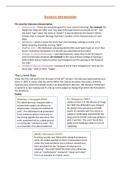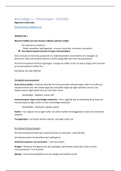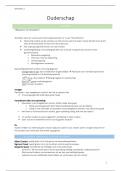Summary
Summary Statutory Interpretation- The Four Rules
- Course
- Institution
- Book
An explanation of why statutory interpretation is needed. Detailed notes on all four rules within SI and cases demonstrating their use within the legal system. All rules are evaluated with their strengths and weaknesses.
[Show more]







